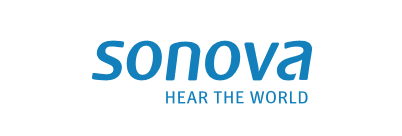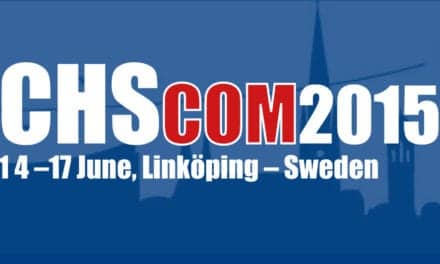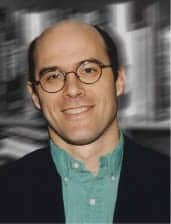Sonova Holding AG announced that it is expanding its range of audiological care services to support patients with different medical needs often co-existing with hearing loss.1 This includes tinnitus care, auditory-cognitive training, as well as fall risk assessment and mitigation.
Related article: Sensorion, Sonova Sign Research Collaboration
“Mounting evidence shows us that unmanaged hearing loss can have significant impact on a person’s quality of life, affecting psychosocial, socioemotional, and physical factors,” says Christophe Fond, group vice president, audiological care, at Sonova. He adds, “Due to the fact that hearing loss is associated with additional risk factors and coexisting conditions, hearing loss should be treated in the context of other medical needs. By taking a holistic view and expanding our services, we will meet the needs of more patients, serving as their partner in healthy aging.”2,3
Increased self-management options in tinnitus care
Tinnitus affects 10-15% of the adult population and about 80-90% of tinnitus patients have some form of hearing loss that requires clinical intervention.4,5 To date, no immediate, 100% effective solution exists to cure tinnitus.6 Instead, those approaches which counsel tinnitus patients and allow them to manage their condition according to their individual needs, have proven successful. Sonova Audiological Care recently developed a holistic tinnitus management approach, which is based on current clinical best practice.4
Within this holistic management approach, a specific two-stage education program for Sonova’s hearing care professionals (HCPs) was implemented. In several Group Companies in the Audiological Care business, all HCPs are being trained on basic tinnitus care, and a subset of HCPs in its medical hubs are receiving comprehensive training to become proficient in advanced tinnitus counseling methods, according to the company.
Digital offering for auditory-cognitive training
As part of its expanded holistic service portfolio, Audiological Care is also introducing auditory-cognitive training (ACT), a combination of exercises that train cognitive skills like focused attention, divided attention, auditory perception, phonological short-term memory, and working memory. ACT will be available to patients in more than 40 locations in Austria, Canada, and the Netherlands from October 2021. Accessible on private mobile devices, the digital training suite will offer a gamified experience to the users, designed to improve cognitive skills. 7
Preventive strategies: fall risk assessment and mitigation
Estimates show that every third person over the age of 65 falls at least once a year8 . These falls can result in broken bones and hips or head trauma that may lead to hospitalization or even long-term health consequences.9,10 Recent research has shown that hearing loss results in up to a three times higher fall risk. 11,12 Therefore, Sonova Audiological Care aims to raise awareness, provide counseling on common risk factors (including hearing impairment), and inform on preventive strategies such as functional screening, regular physical activity, and multimodal exercising as successful ways for supporting healthy aging and reducing the risk of falls. 13
In addition, Sonova’s Audiological Care business is introducing fall risk assessments to educate patients on their specific risk factor for falls. The assessment is performed using body-worn sensors created by a third party. The result is used to make personalized recommendations where appropriate.
Being informed on fall risk is especially relevant for individuals aged 65+, for whom two conditions often associated with aging – osteoporosis and hearing loss – can be life-changing events, potentially bringing isolation and dependency. Despite this, only one in three people over 65 at high risk of osteoporosis and hearing loss are currently diagnosed in Europe.14 Osteoporosis has been identified as a potential significant risk factor for hearing loss, and scientific evidence suggests that the risk of hearing loss is increased by 20% in individuals with osteoporosis. 15
To close this diagnosis gap, Sonova Audiological Care has entered a collaboration with Amgen, a biotechnology company. For more information, please refer to Amgen Europe’s website: https://www.amgen.eu/amgen-media-release/featured-news/amgen-and-sonova-collaboration.
To raise awareness further, AuditionSanté, Sonova’s Audiological Care brand in France, will join Amgen France in its roadshow in three major French cities (Paris, Marseille, and Lille) in the weeks leading up to World Osteoporosis Day (October 20). The roadshow will offer a hybrid format, providing information about osteoporosis, fracture risks, and healthy aging – both live and through digital channels – as well as interactive activities such as tai chi sessions, Smoothie bikes, and a hearing corner. The program of the roadshow is available here: https://www.toutsurosteoporose.fr/ .
References
- Stam M, Kostense PJ, Lemke U, et al. Comorbidity in adults with hearing difficulties: Which chronic medical conditions are related to hearing impairment? Int. J. Audiol. 2014;53(6):392-401.
- Besser J, Stropahl M, Urry E, Launer S. Comorbidities of hearing loss and the implications of multimorbidity for audiological care. Hearing Research. 2018;369:3-14.
- Saunders GH, Vercammen C, Timmer BHB, et al. Changing the narrative for hearing health in the broader context of healthy living: A call to action. International Journal of Audiology. 2021;60(Sup2):86-91.
- Cima RFF, Mazurek B, Haider H, et al. A multidisciplinary European guideline for tinnitus: Diagnostics, assessment, and treatment. HNO. 2019;67(Suppl 1):S10-S42.
- National Institute for Health and Care Excellence (NICE). Tinnitus: Assessment and Management. https://www.nice.org.uk/guidance/ng155/resources/tinnitus-assessment-and-management-pdf-66141841962949. Published March 11, 2020.
- McFerran DJ, Stockdale D, Holme R, Large CH, Baguley DM. Why is there no cure for tinnitus? Frontiers in Neuroscience. 2019;13(802).
- Shah TM, Weinborn M, Verdile G, Sohrabi HR, Martins RN. Enhancing cognitive functioning in healthly older adults: A systematic review of the clinical significance of commercially available computerized cognitive training in preventing cognitive decline. Neuropsychology Review. 2017;27:62-80.
- Kressig RW, Bridenbaugh SA. Falls. In: Roller-Wirnsberger R, Singler K, Polidori M, eds. Learning Geriatric Medicine. Practical Issues in Geriatrics. 1st ed. Springer Publishing; 2018:89-98.
- National Institute for Health and Care Excellence (NICE). Falls in older people: assessing risk and prevention. NICE Clinical Guideline 161. https://www.nice.org.uk/guidance/CG161. Published June 12, 2013.
- Centers for Disease Control and Prevention (CDC) website. Facts About Falls. https://www.cdc.gov/falls/facts.html. Published August 6, 2021.
- Lin FR, Ferrucci L. Hearing loss and falls among older adults in the United States. Arch Intern Med. 2012;172(4):369-371.
- Jiam, NT-L, Li C, Agrawal Y. Hearing loss and falls: A systematic review and meta-analysis. Laryngoscope. 2016;126(11):2587-2596.
- World Health Organization (WHO). Integrated Care for Older People. https://apps.who.int/iris/handle/10665/258981. Published 2017. Retrieved September 3, 2021.
- Shield B. Hearing Loss—Numbers and Costs. Evaluation of the social and economic costs of hearing impairment. A report for Hear-It AISBL. https://www.hear-it.org/sites/default/files/BS%20-%20report%20files/HearitReportHearingLossNumbersandCosts.pdf. Retrieved September 3, 2021.
- Upala S, Rattanawong P, Vutthikraivit W, Sanguankeo A. Significant association between osteoporosis and hearing loss: A systematic review and meta-analysis. Brazilian Journal of Otorhinolaryngology. 2017;83(6):646-652.
Source: Sonova
Image: Sonova





